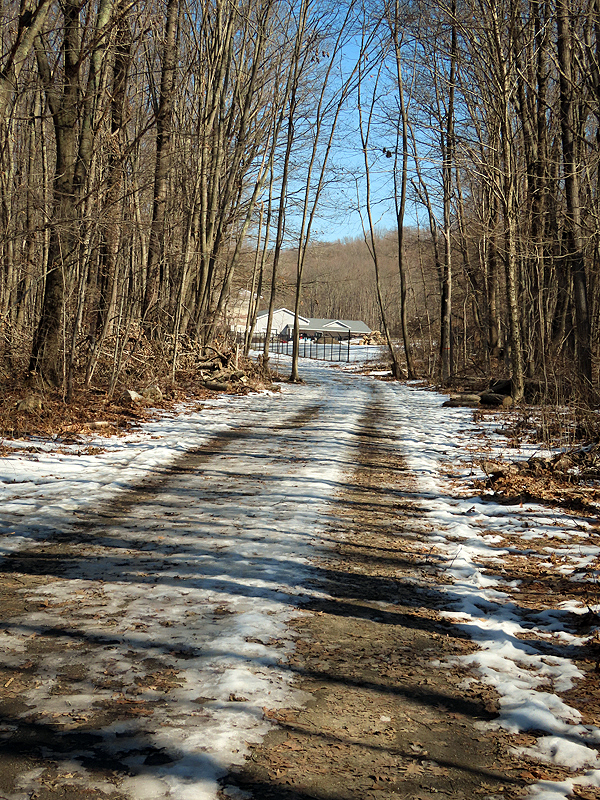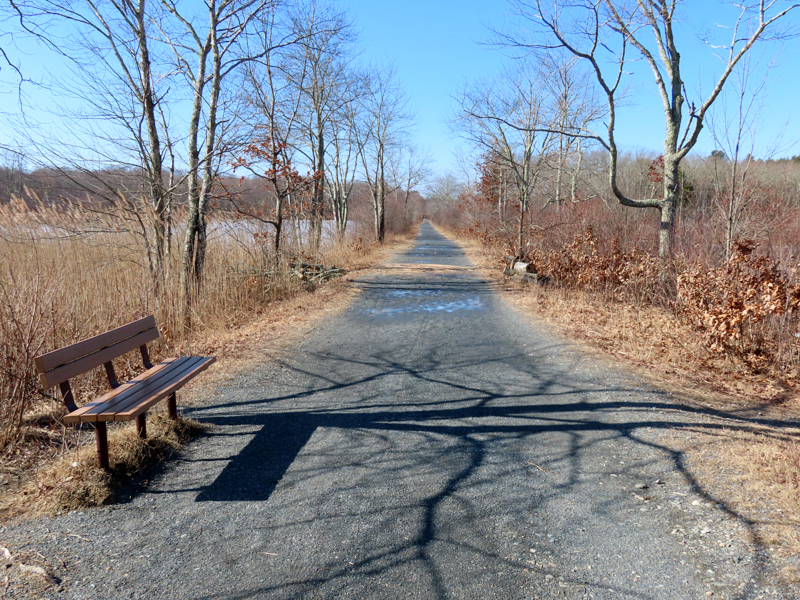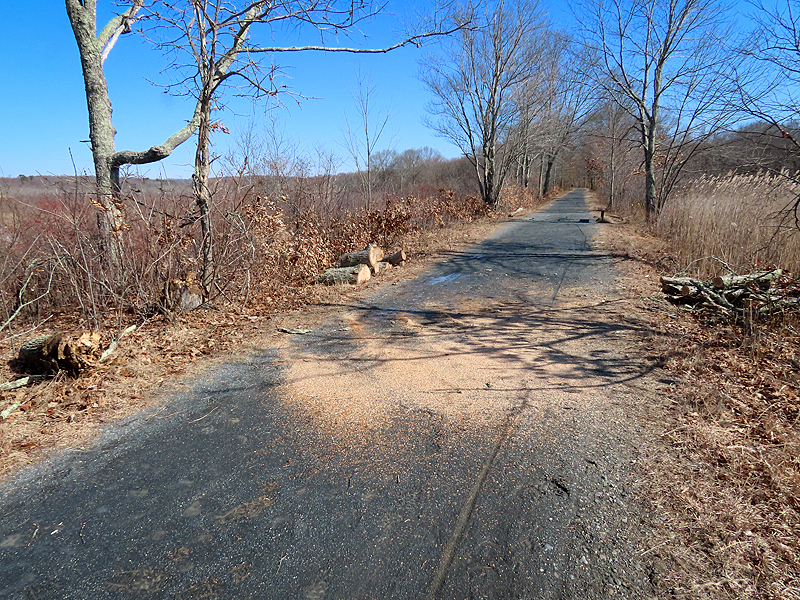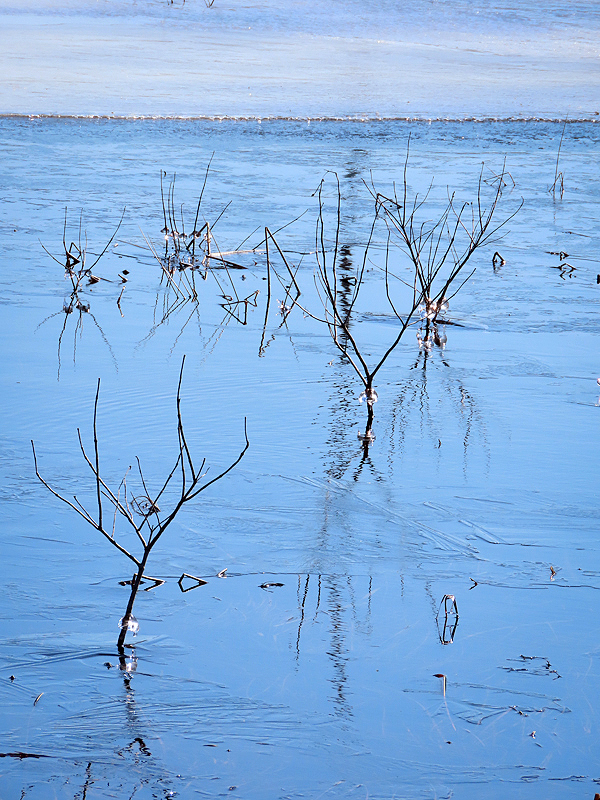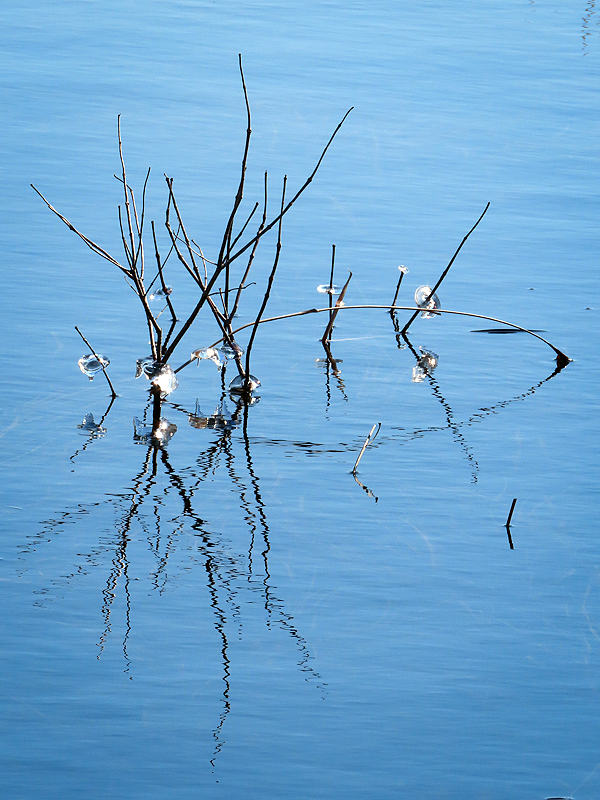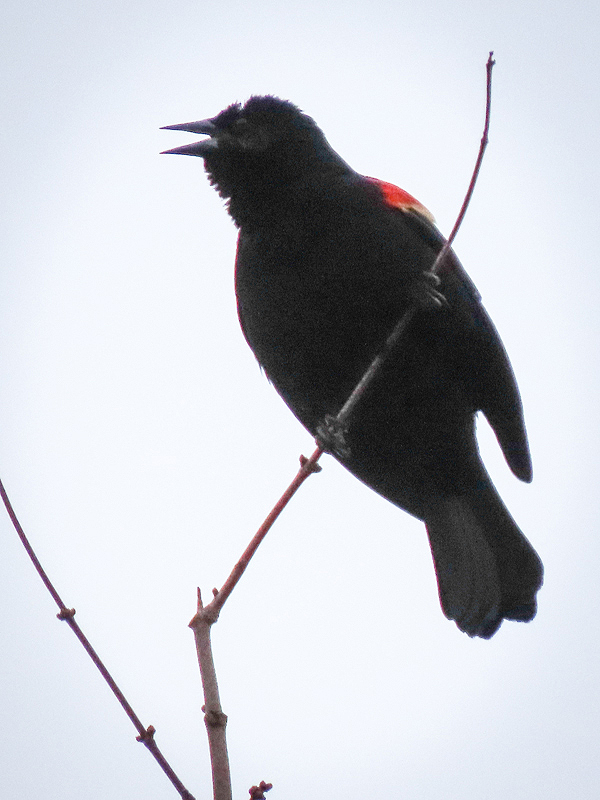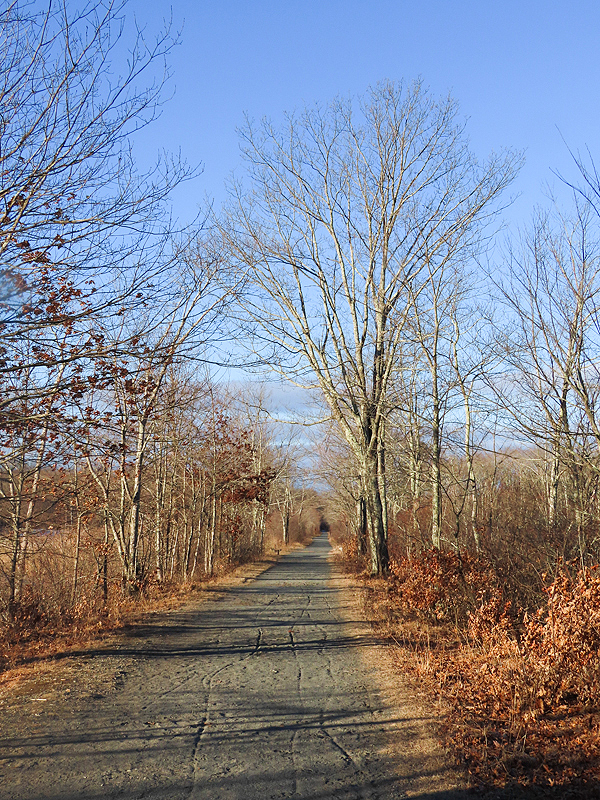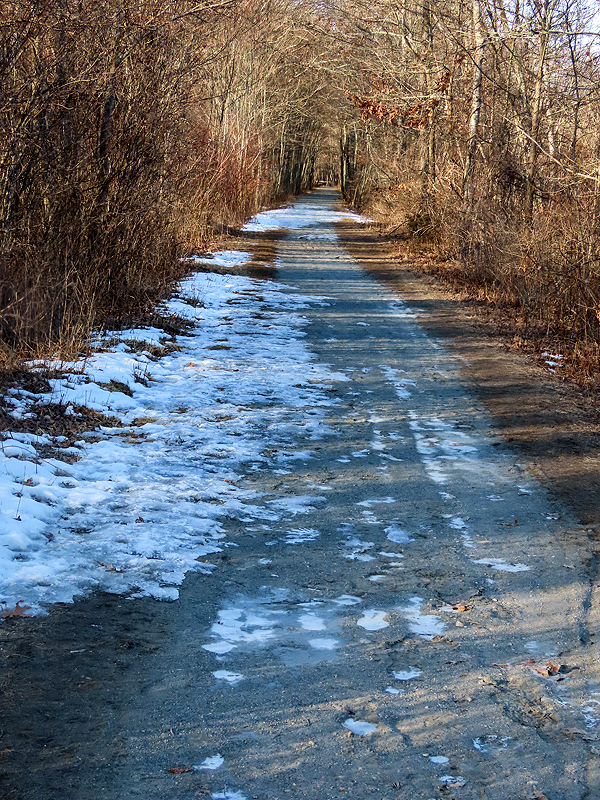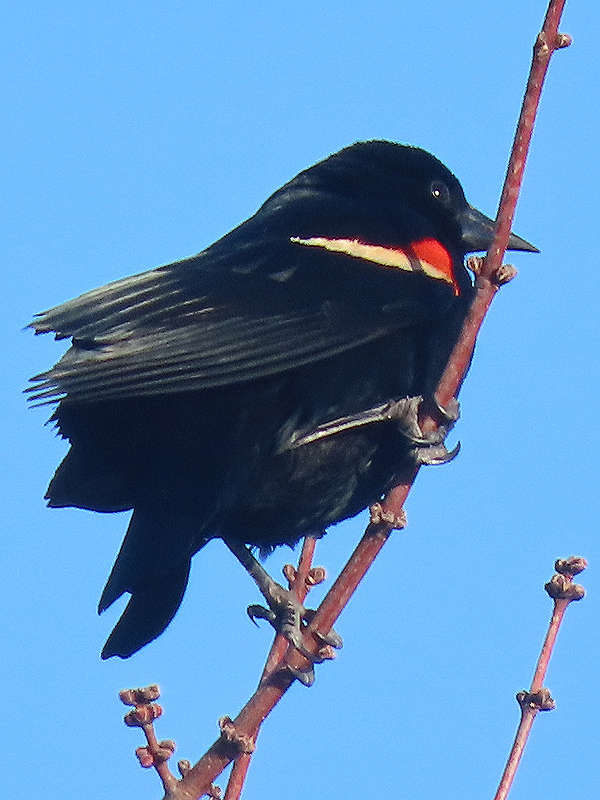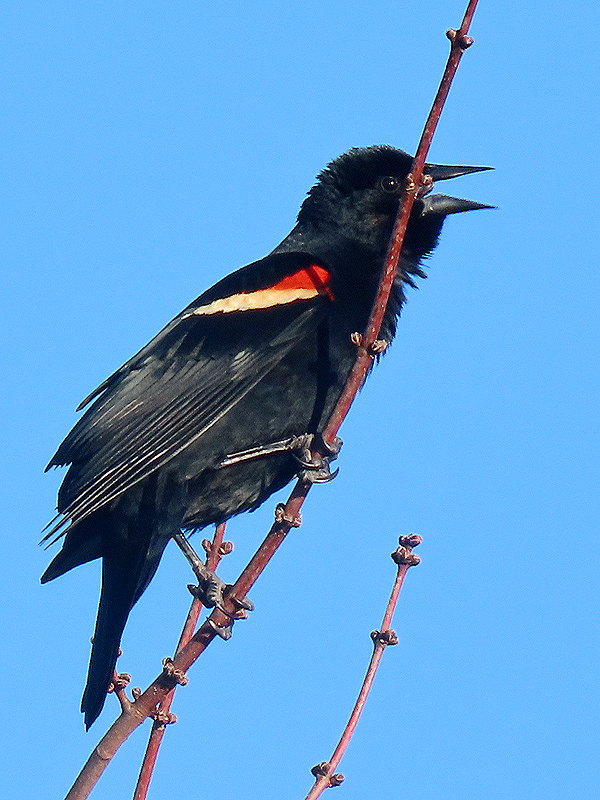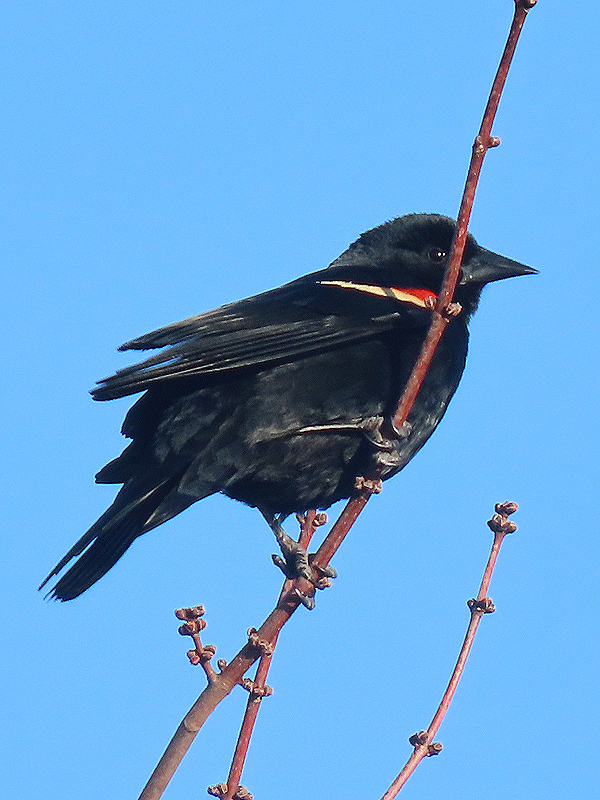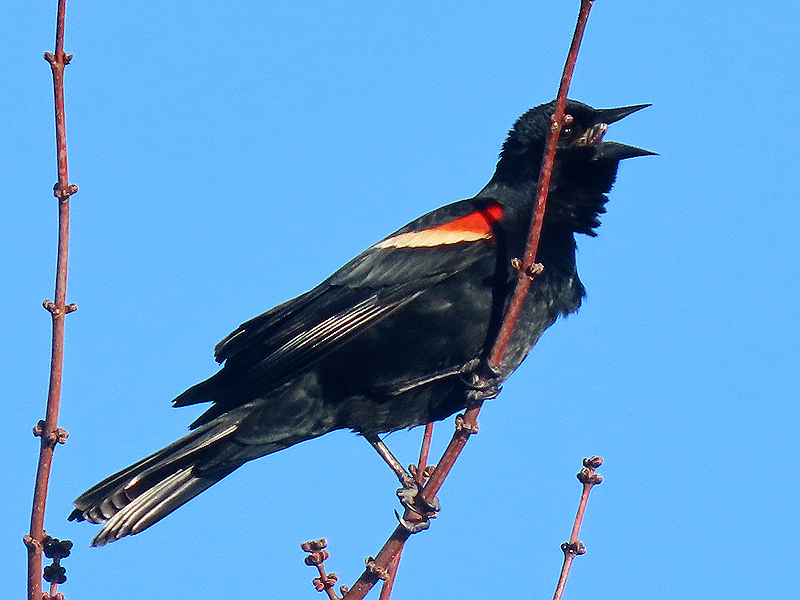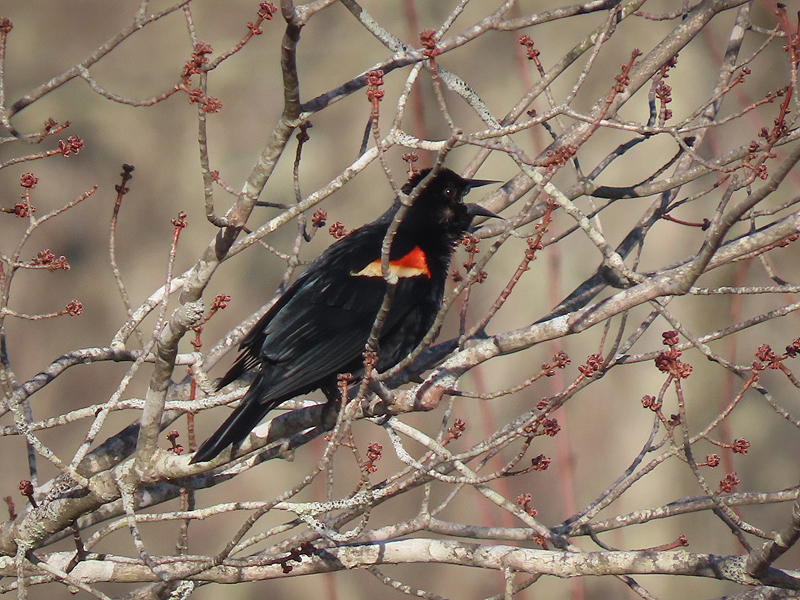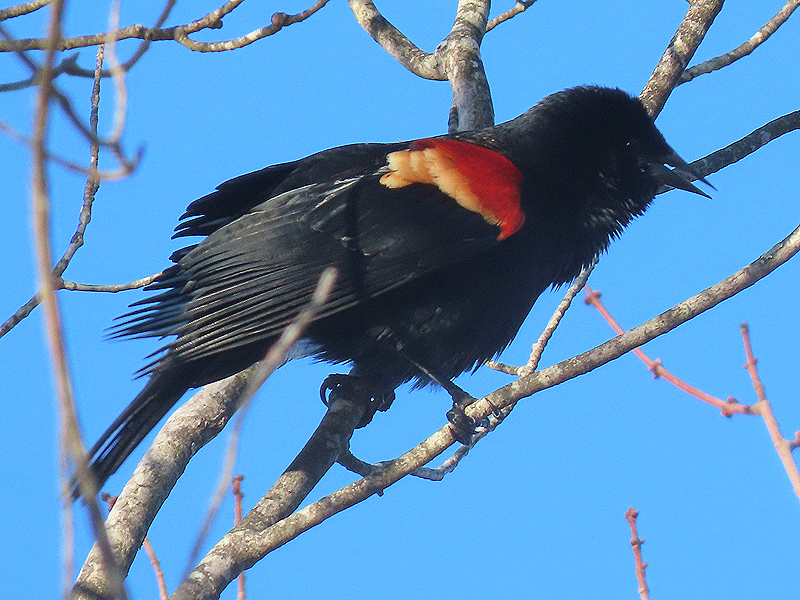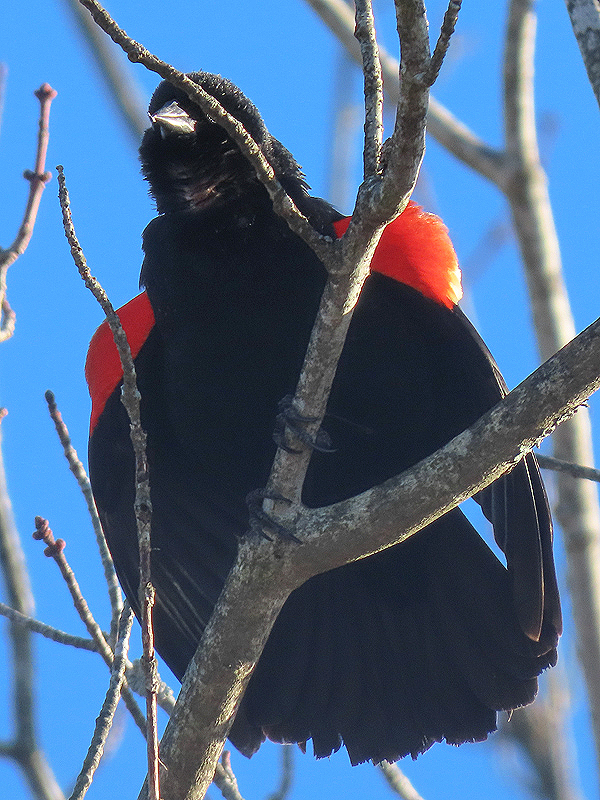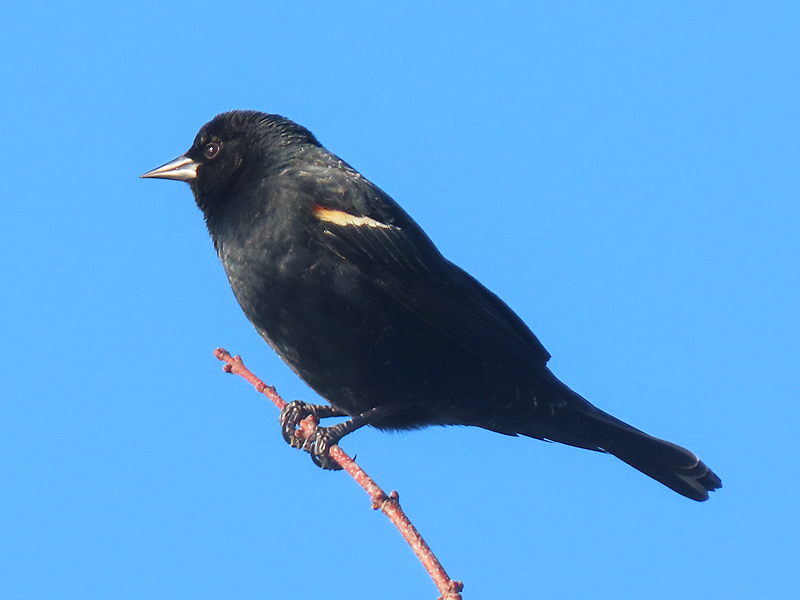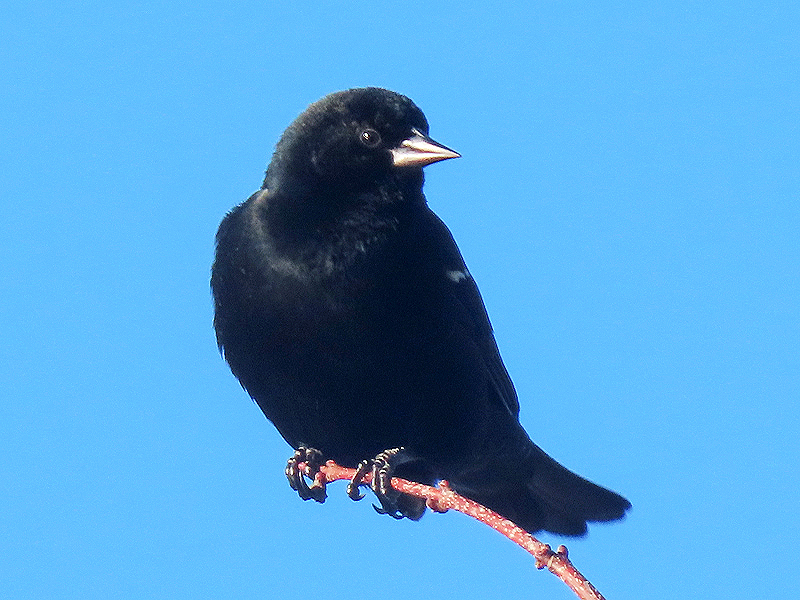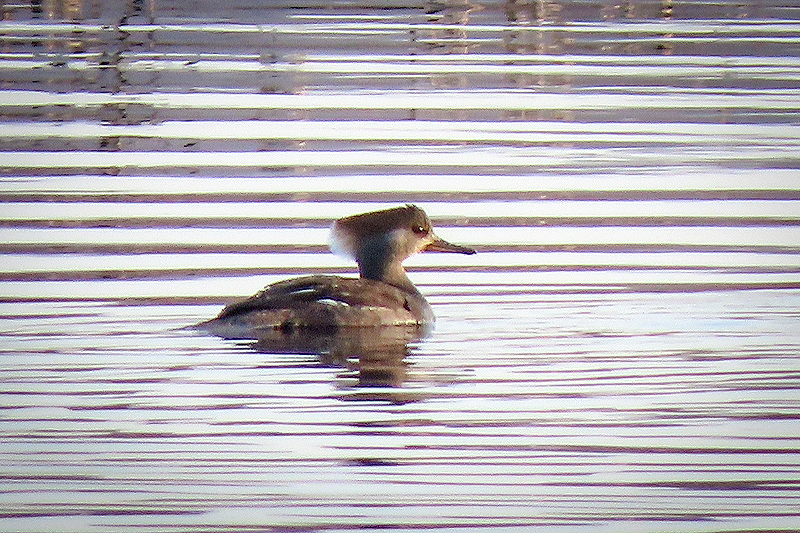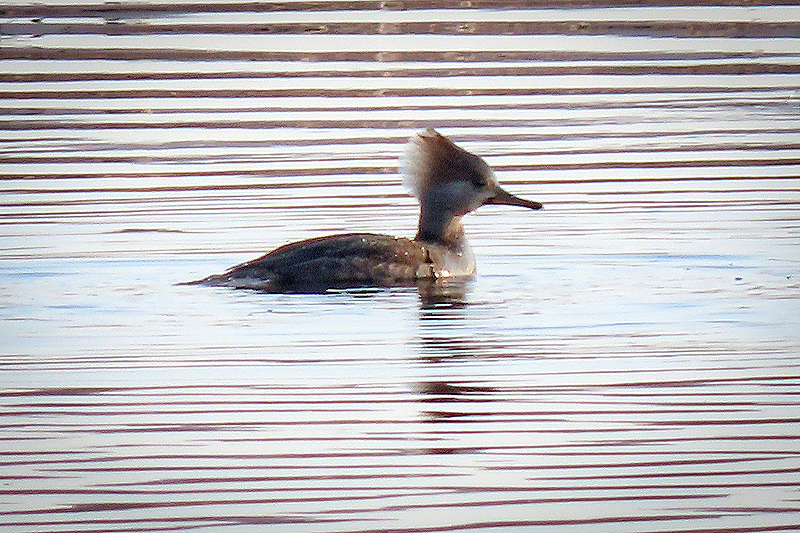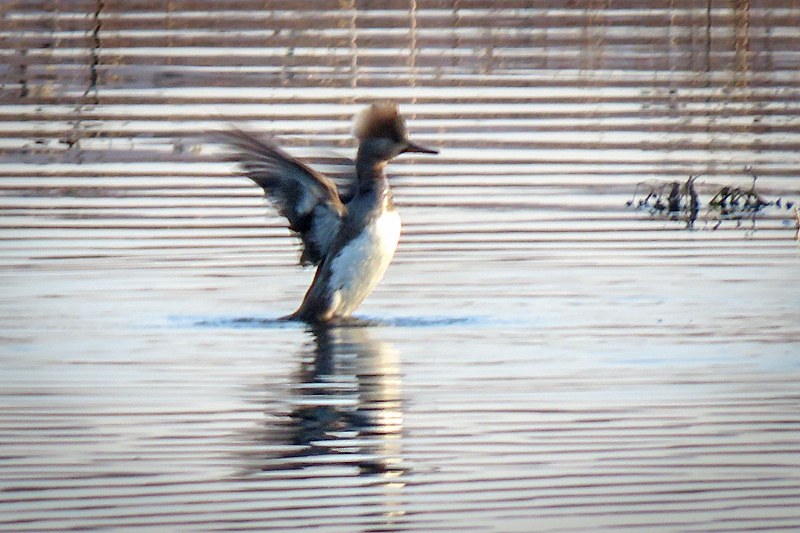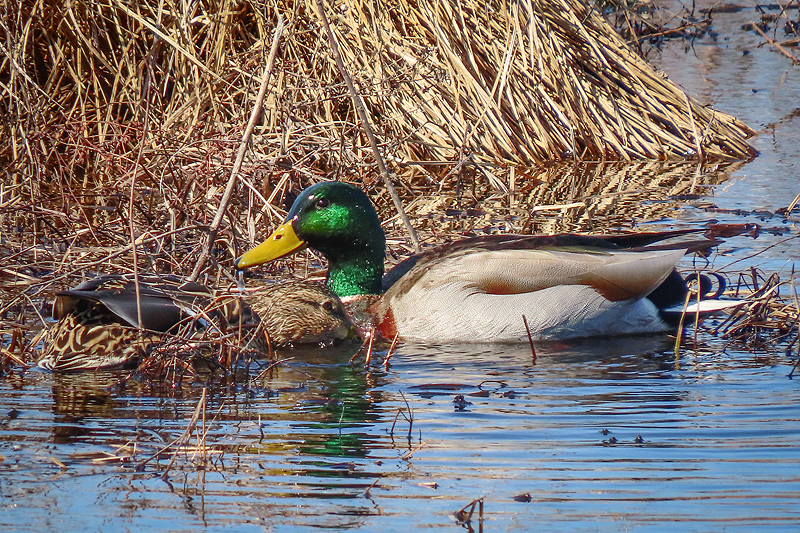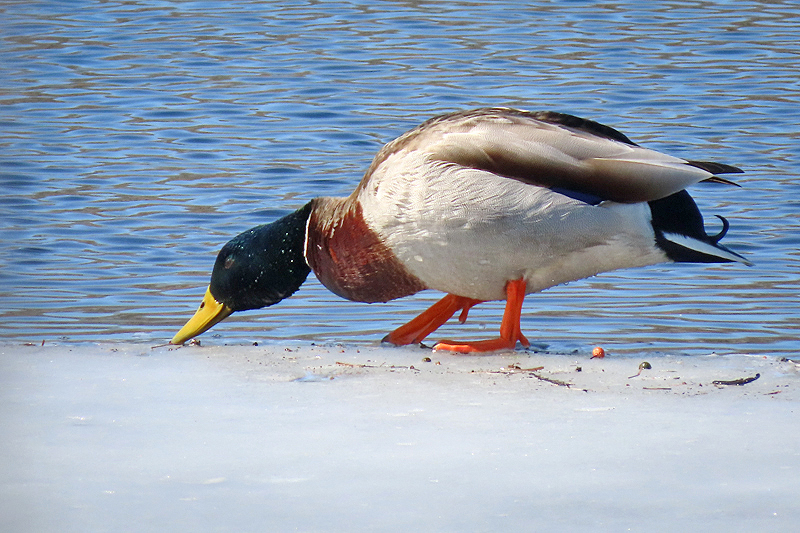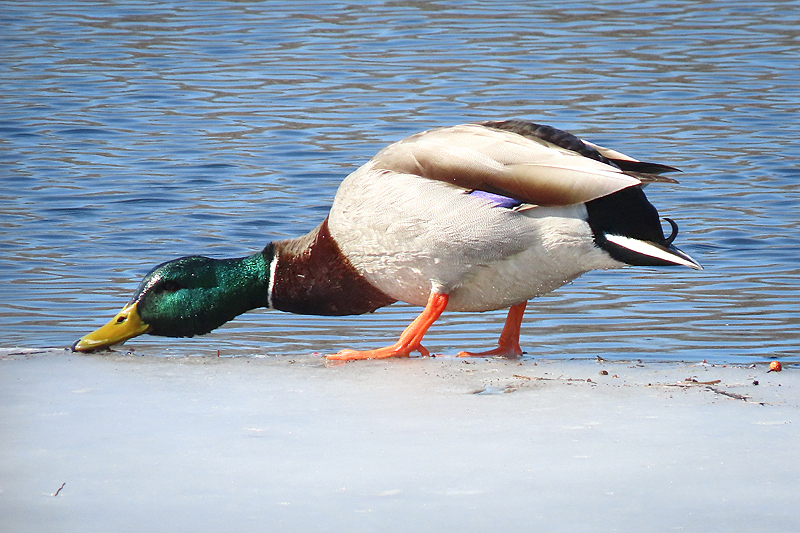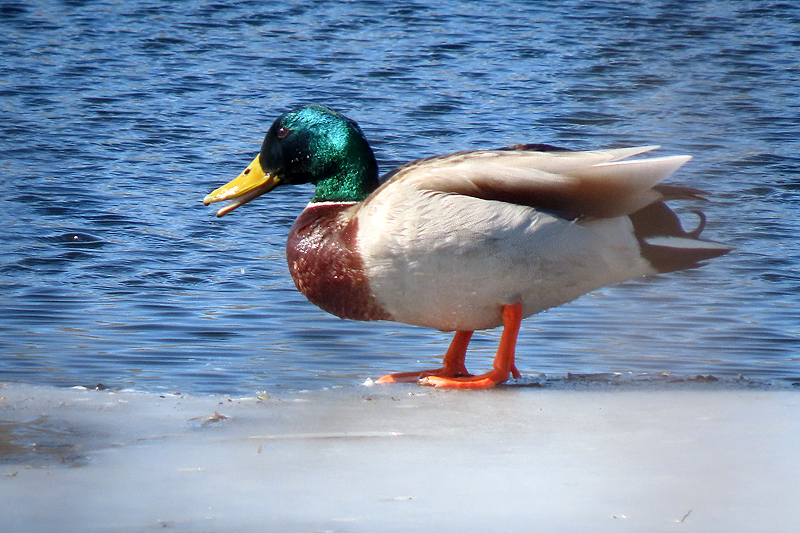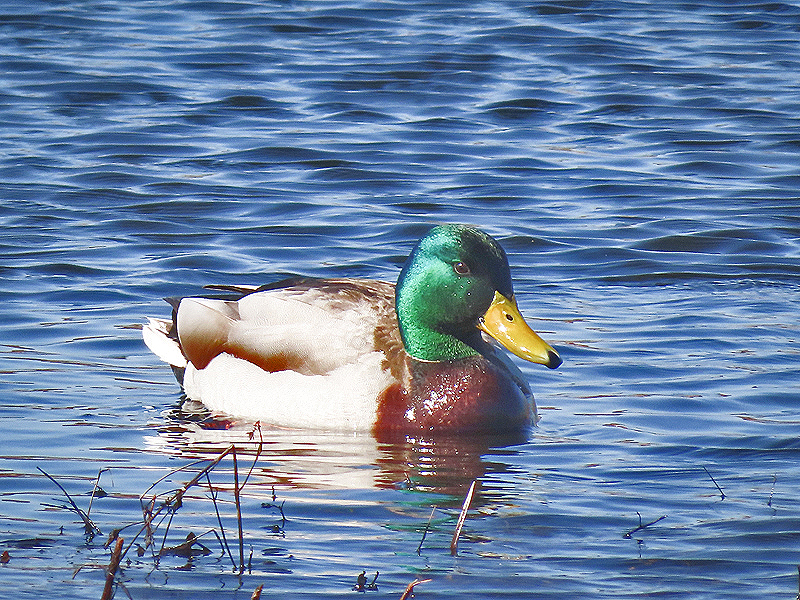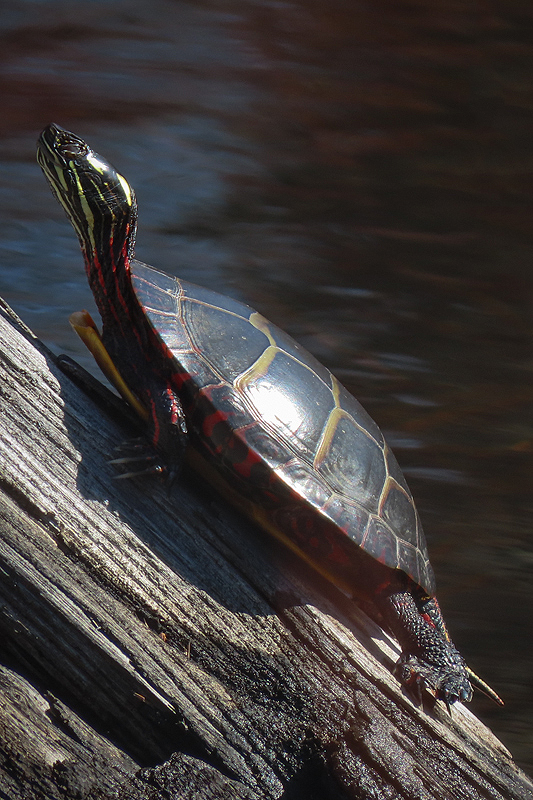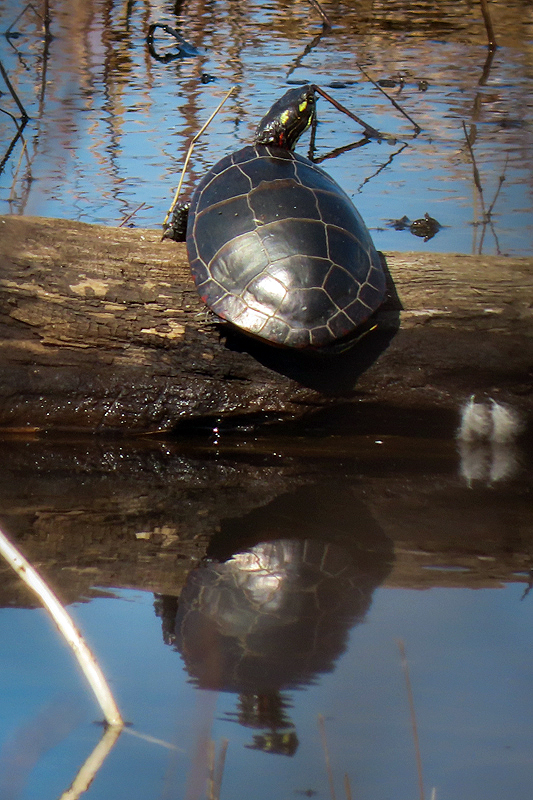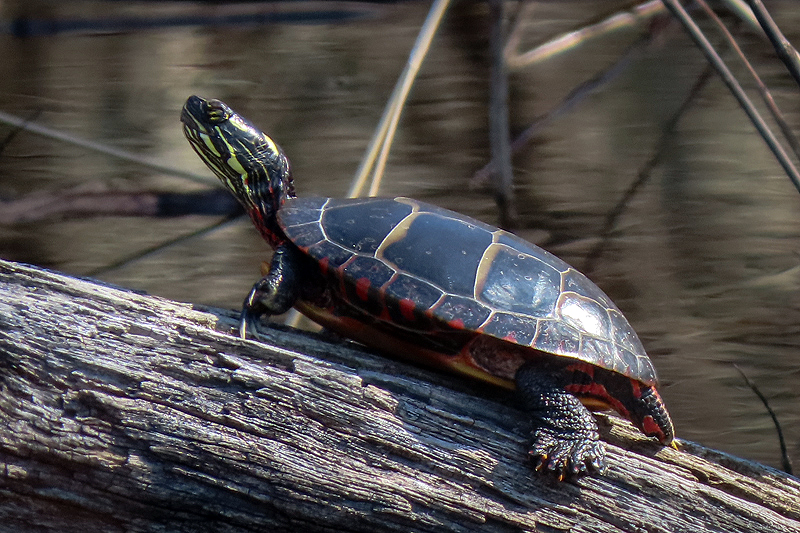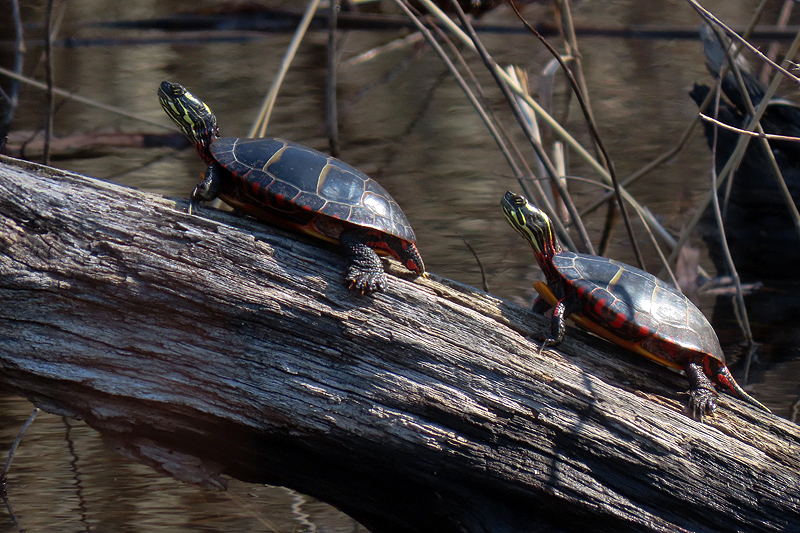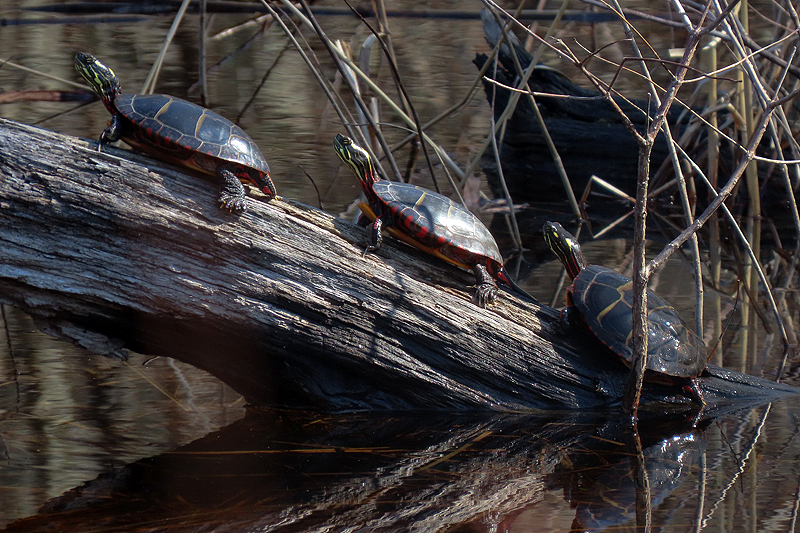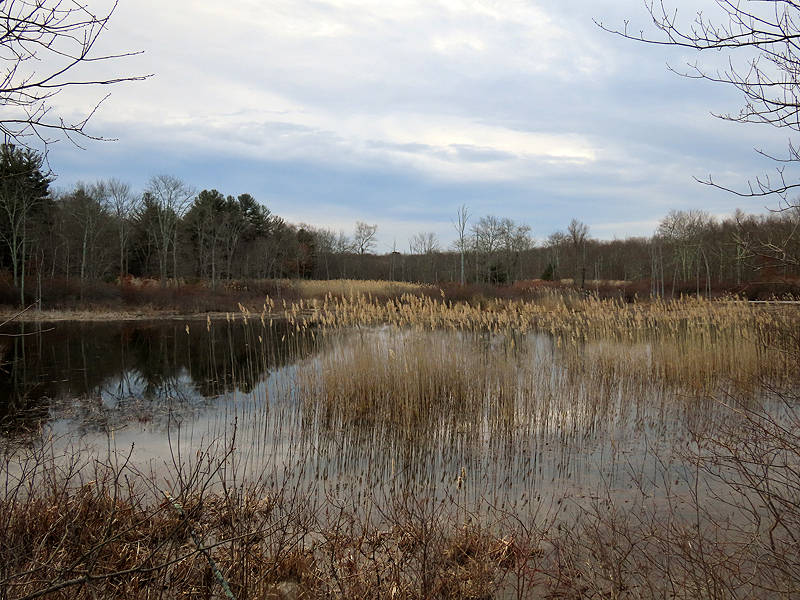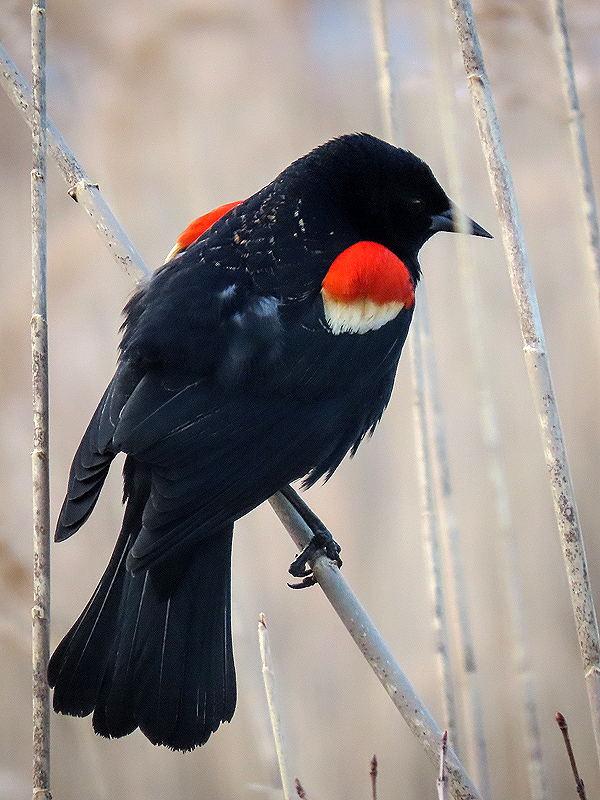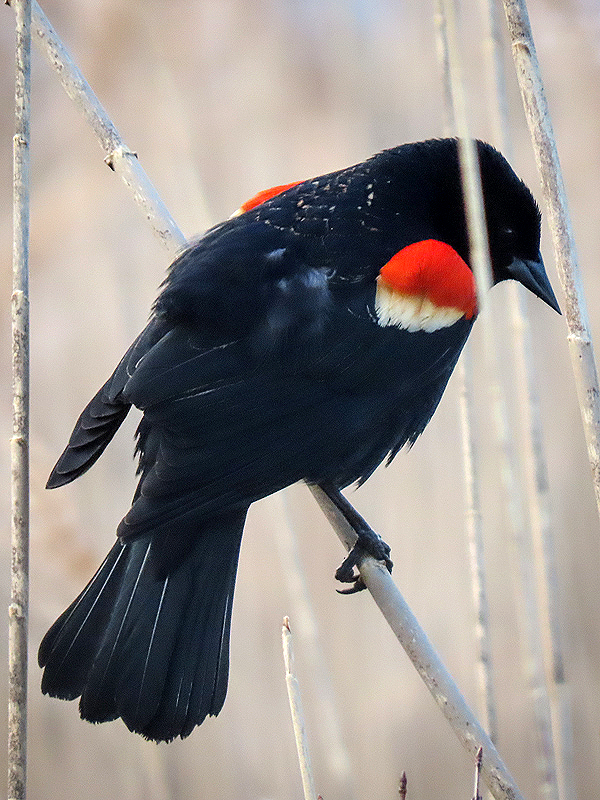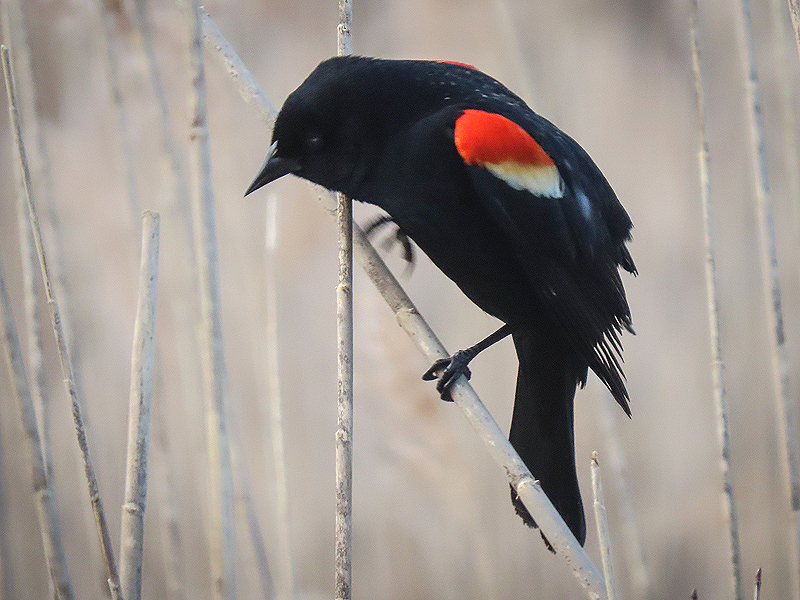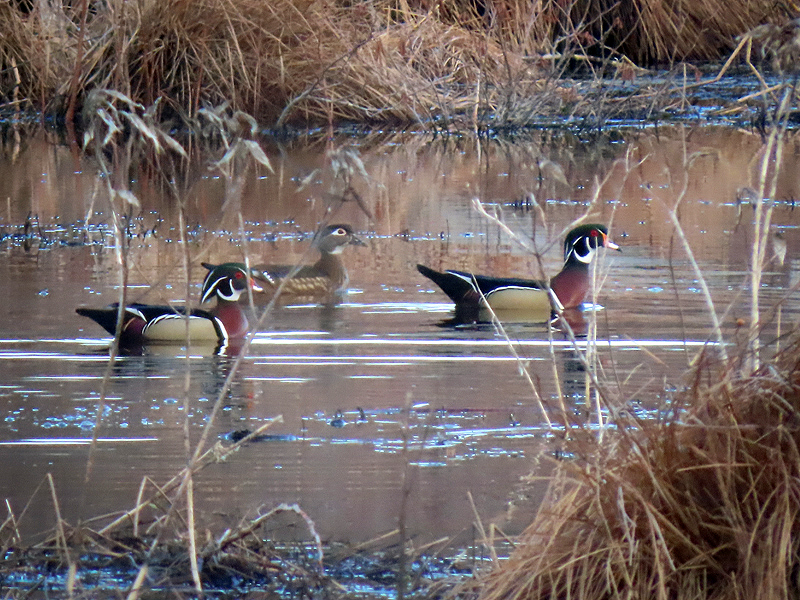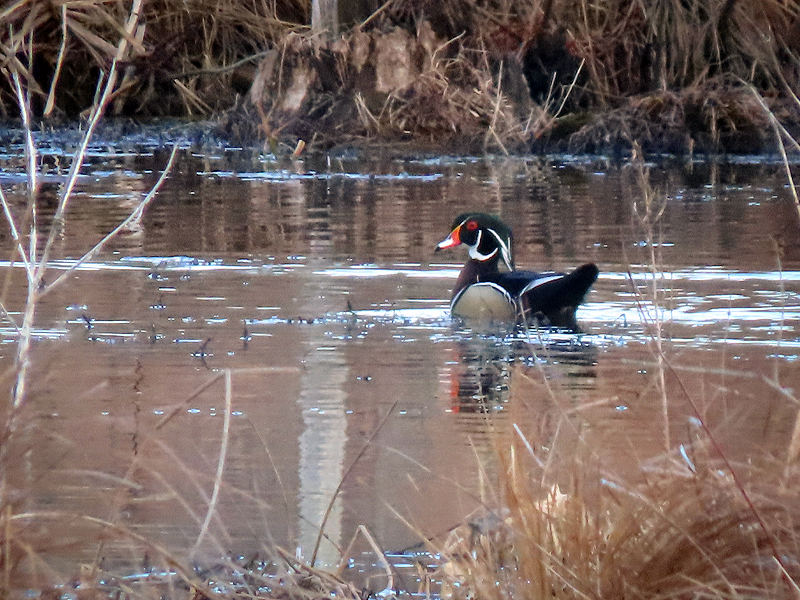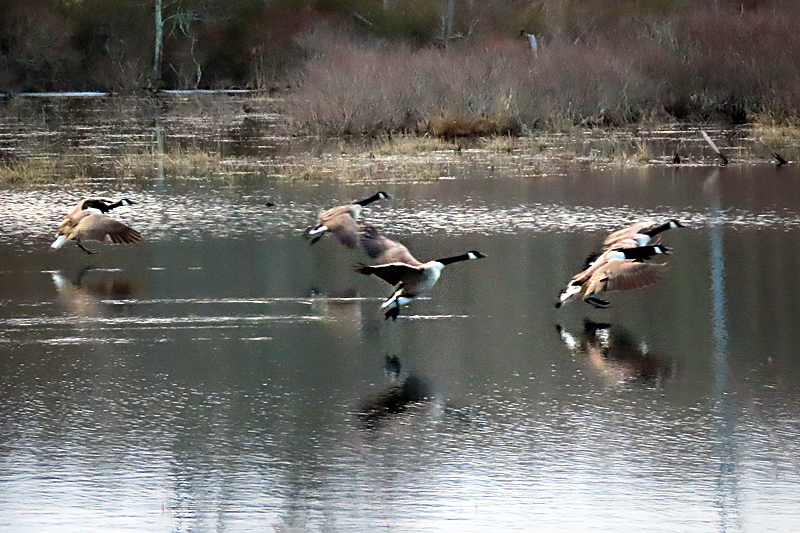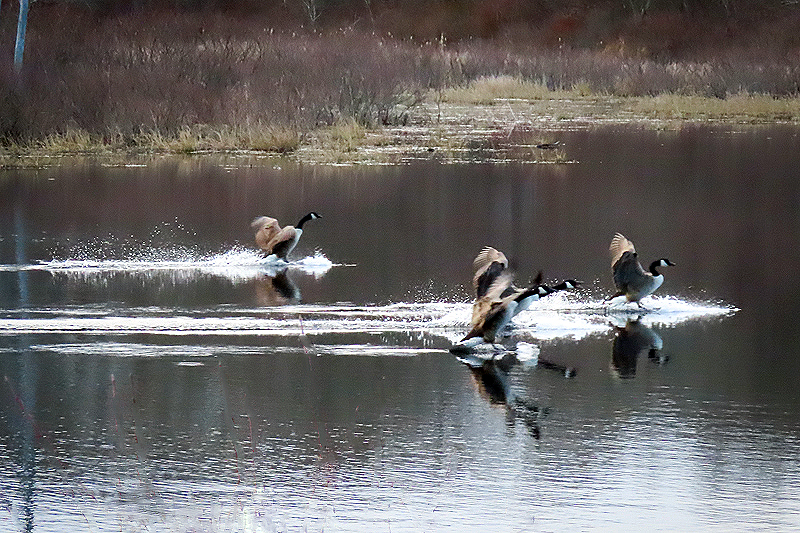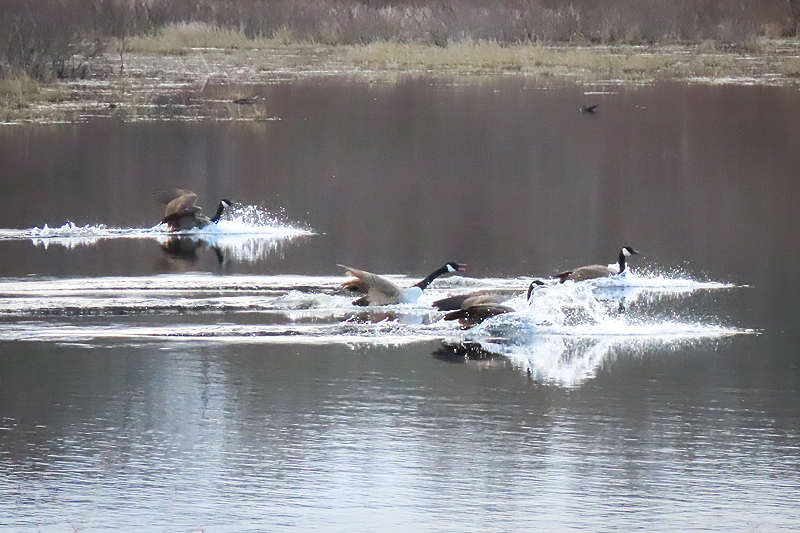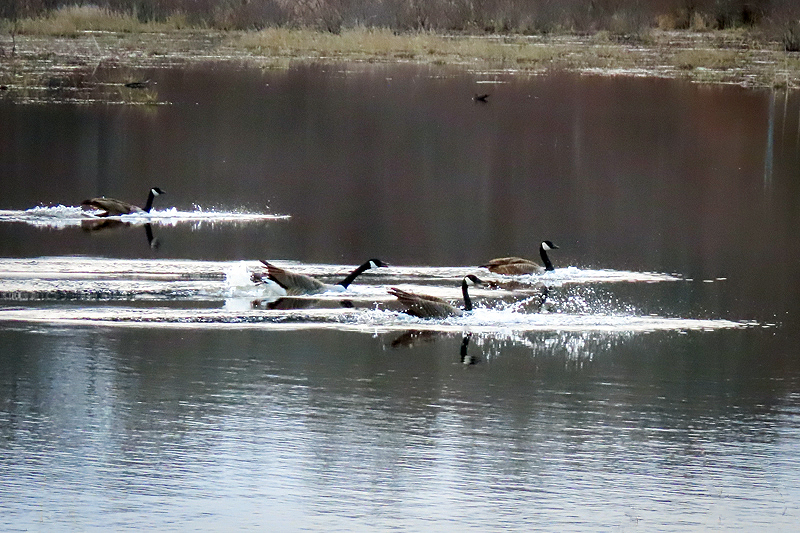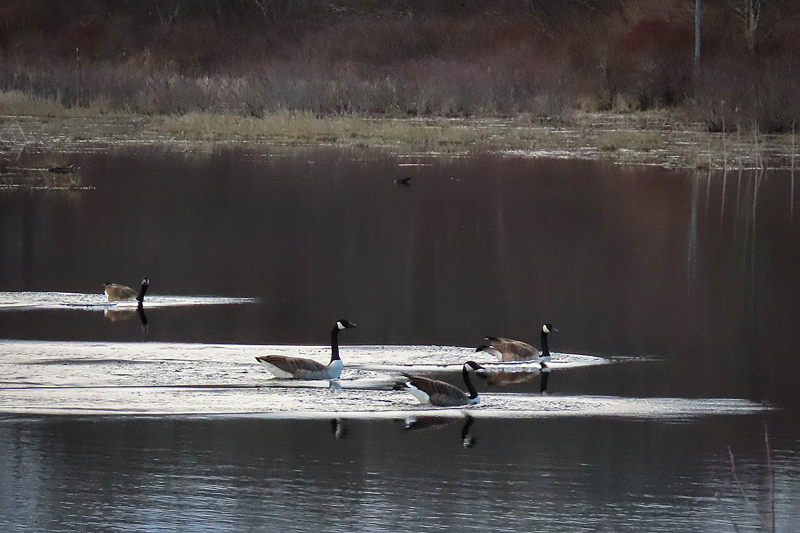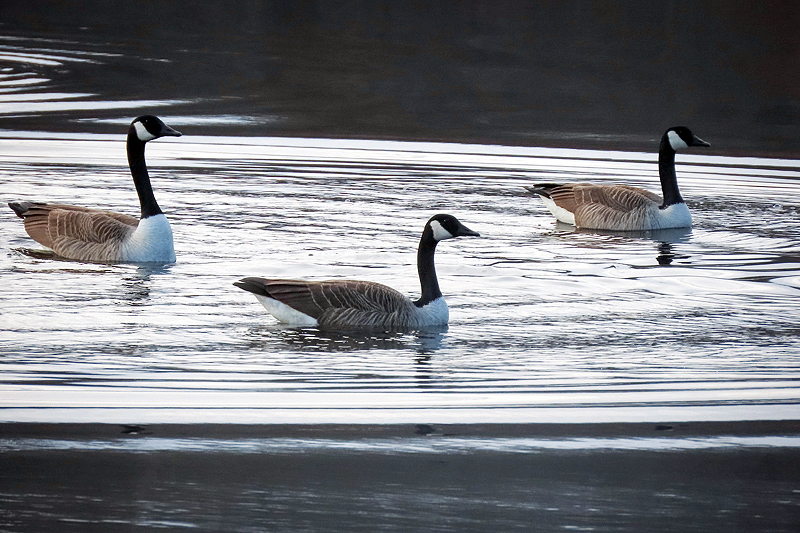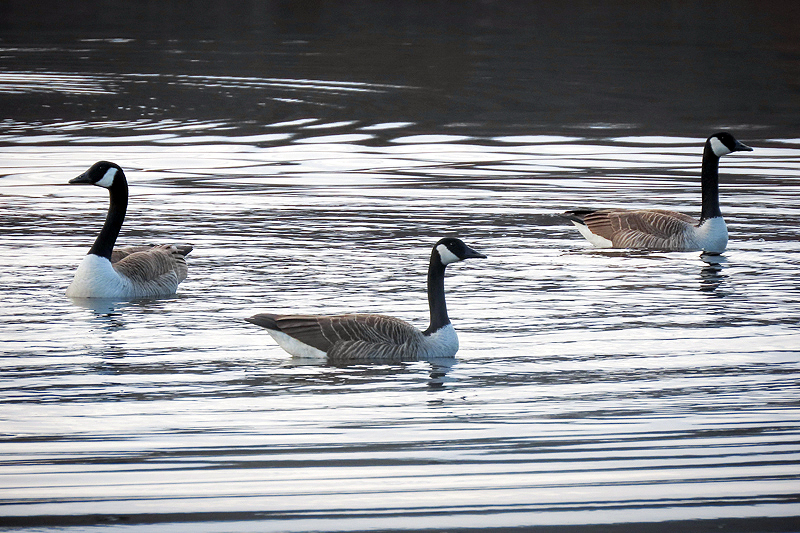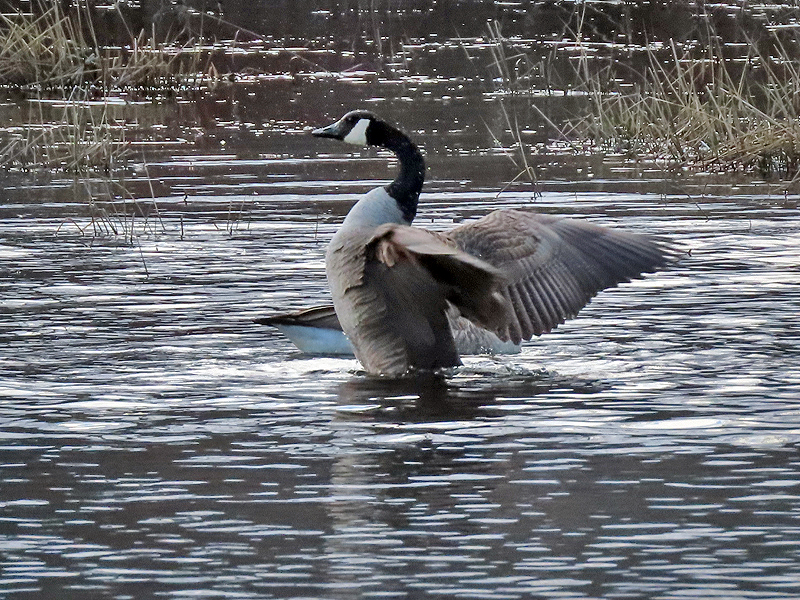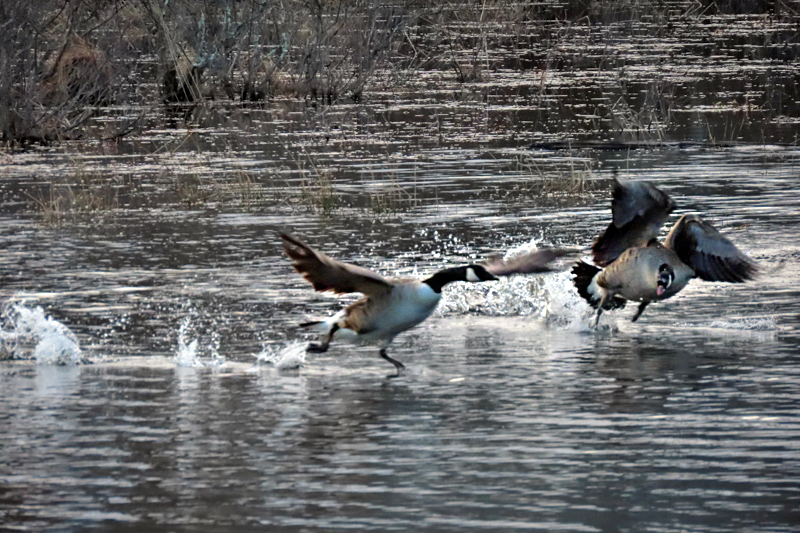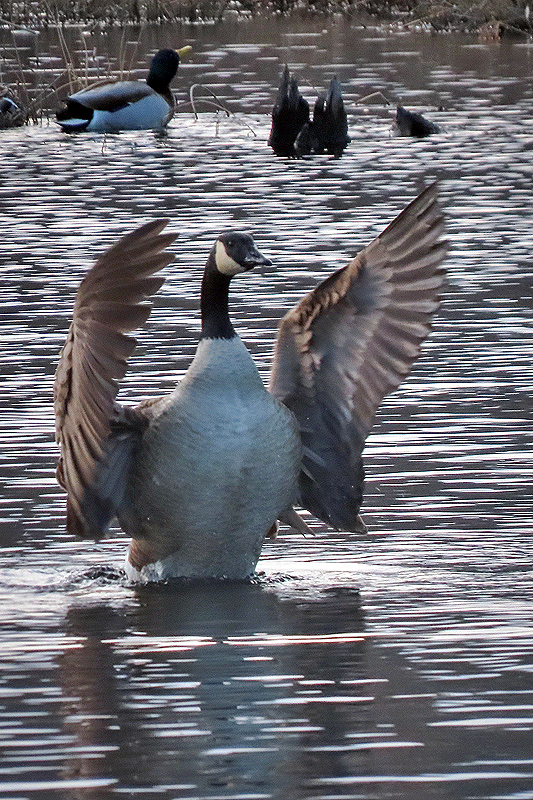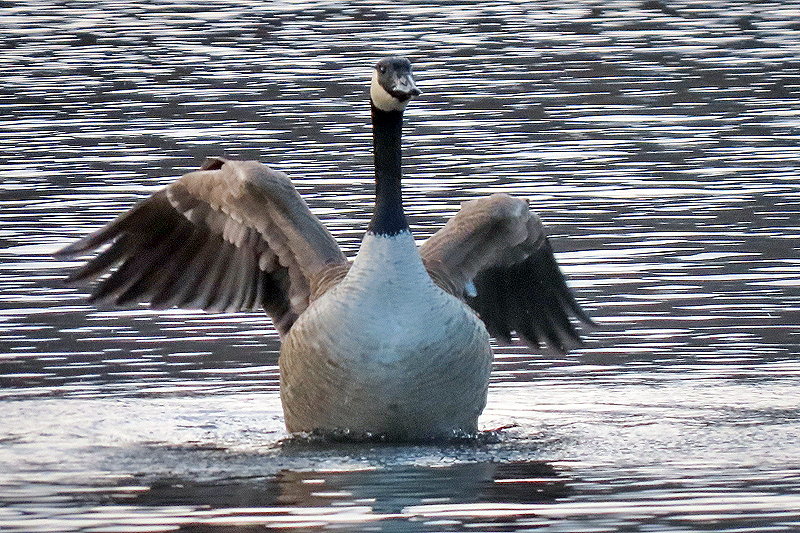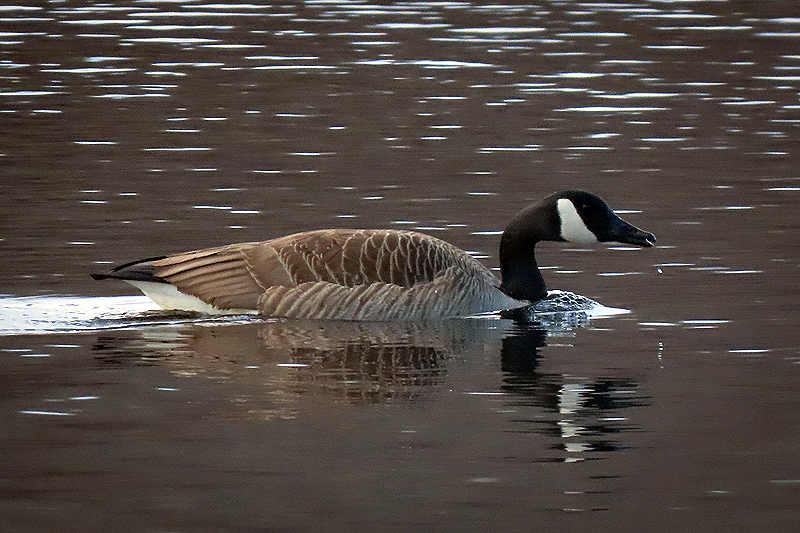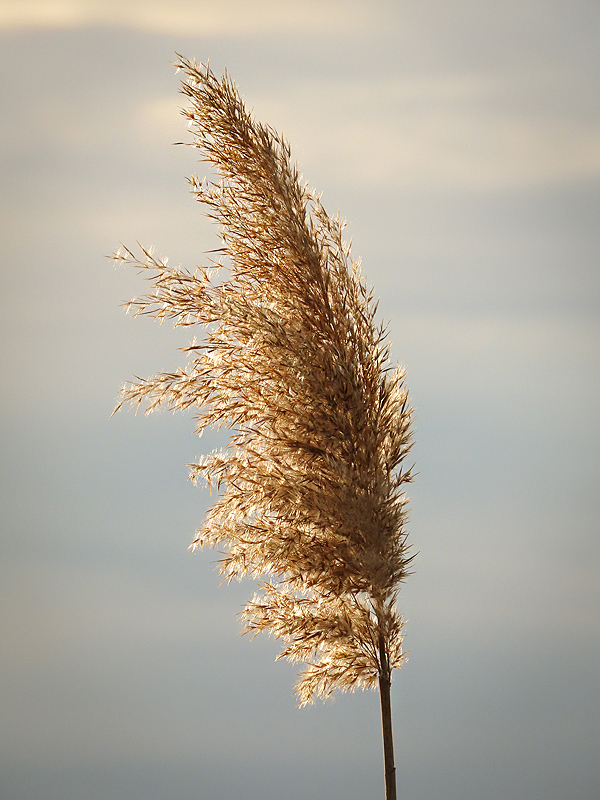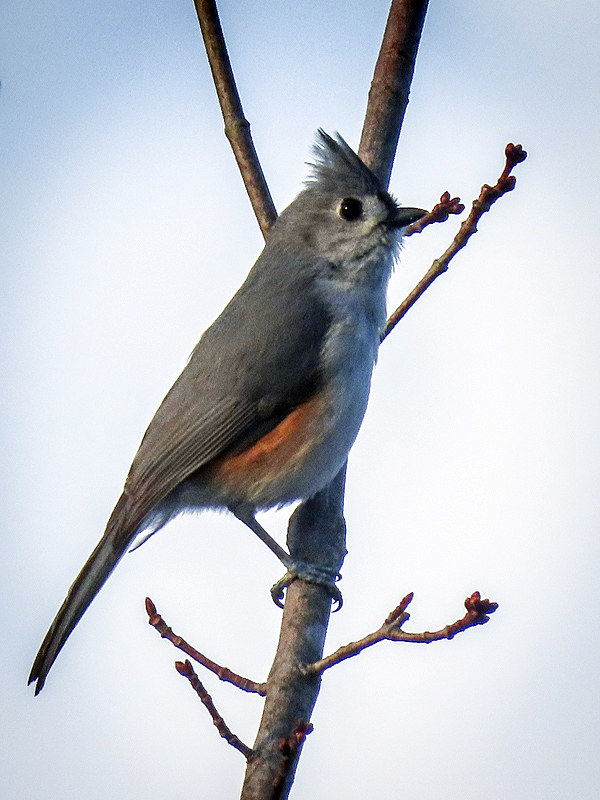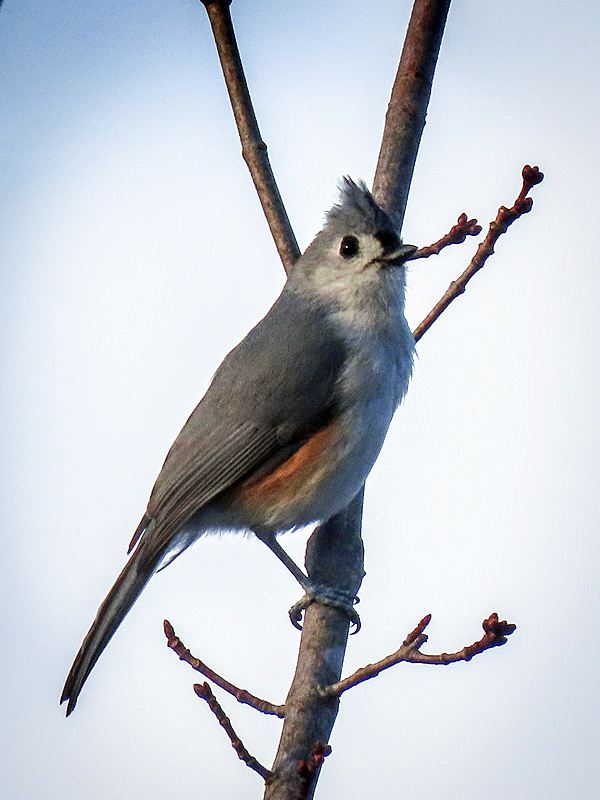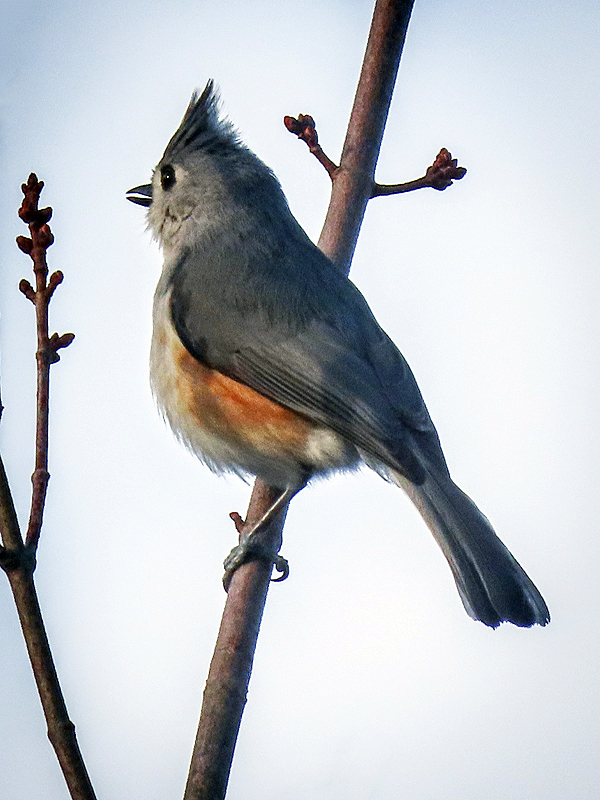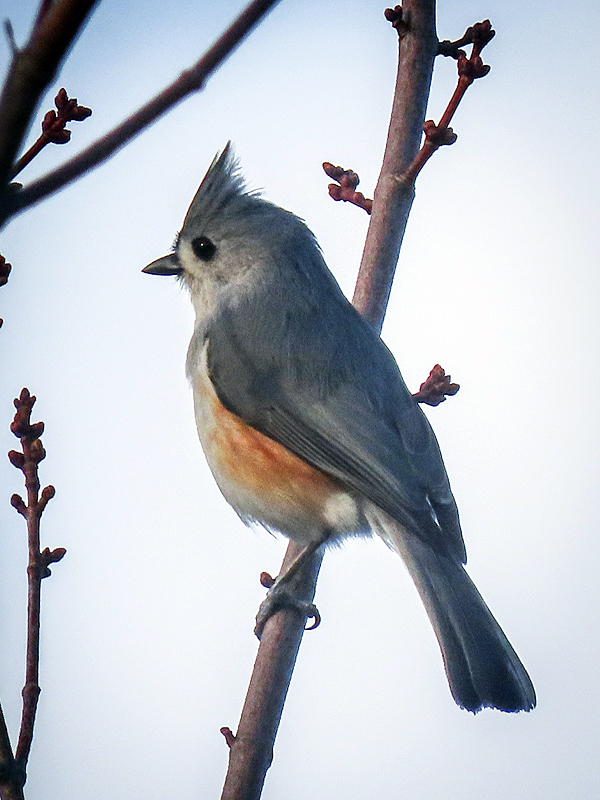Along the Air Line... 2020-2021 - Winter, Part 10 The Air Line Trail in Eastern Connecticut - Stan Malcolm Photos |
HOME: Air Line... 2021 Pages Menu Stan's FlickR Albums |
March 3rd. Less ice on the trail though for some spots ice cleats are a good idea. |
Recent gales took down a large dead tree. |
Glad the Hebron town crew were able to quickly deal with it. |
Ice rings around emergent branches mark previous higher water levels. |
|
March 4th. Low light made for low quality Red-winged Blackbird (Agelius phoeniceus) photos. |
Nice to hear them though. They were several weeks later than usual returning to the marsh. |
March 6th. 22 degrees and gusty winds... but the trail is mostly ice free... |
...except as you approach Old Colchester Road. |
A few Red-winged Blackbirds (Agelius phoeniceus) calling. |
No waterfowl; the marsh and Raymond Brook are iced over. |
|
|
|
March 7th. Even more Red-winged Blackbirds (Agelius phoeniceus) calling. |
|
Check out those epaulets. |
Anoher male, epaulets hidden, chirping but not calling. |
|
March 9th. A few Hooded Mergansers (Lophodytes cucullatus) far away on open water at the marsh. This is a female. |
|
|
Back to the marsh early afternoon. More open water and many Mallards (Anas platyrhynchos). |
|
|
|
|
|
March 11th. Temp well above 60 in the afternoon. First Painted Turtles (Chrysemys picta) of the year. |
|
|
|
|
March 12th. Another morning with temps in the 50s and clearing skies. Ice gone from the marsh. |
Red-winged Blackbirds (Agelius phoeniceus) everywhere. |
|
|
Wood Ducks (Aix sponsa) in the distance. I'd say half a dozen or so. |
(I also saw Tree Swallows (Tachycineta bicolor) but they were too fast for my camera.) |
A group of Canada Geese (Branta canadensis) arrived - the first I've seen at the marsh this year. |
|
|
|
|
|
|
Two more arrived and soon caused a ruckus. |
|
|
|
|
Common Reed (Phragmites australis). |
Tufted Titmouse (Baeolophus bicolor). |
|
|
|
